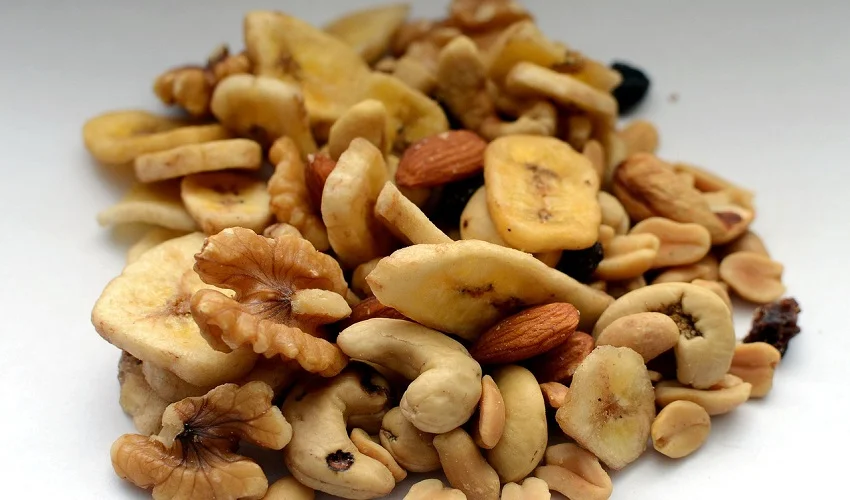What is custard apple?
Custard apple, also known as sugar apple or sweetsop, is a tropical fruit that is native to the Americas. It is a heart-shaped fruit with a green, bumpy skin and creamy white flesh. The fruit has a sweet and creamy flavor, similar to a combination of banana and pineapple. Custard apple is rich in nutrients, including vitamins A and C, potassium, magnesium, and dietary fiber. It is also a good source of antioxidants, which can help protect the body against oxidative stress. This delicious fruit is not only tasty but also offers several health benefits, making it a great choice for diabetics.
Nutritional composition of custard apple
Custard apple has various health benefits. The nutritional composition of custard apple makes it a great choice for diabetics. It is low in calories and high in dietary fiber, which helps regulate blood sugar levels and improve digestion. Custard apple is also a good source of vitamins and minerals, including vitamin C, potassium, magnesium, and iron. These nutrients are essential for maintaining overall health and well-being. Additionally, custard apple is rich in antioxidants, which can help protect against oxidative stress and reduce the risk of chronic diseases. Including custard apple in a balanced diet can be a delicious way to support a healthy lifestyle, especially for individuals with diabetes.
Health benefits of custard apple
Rich in vitamins, minerals, and antioxidants, custard apple is a great addition to a diabetic’s diet. The fruit is low in calories and high in fiber, making it an excellent choice for managing blood sugar levels. Additionally, custard apple is a good source of potassium, which helps regulate blood pressure and reduce the risk of heart disease. The fruit also contains vitamin C, which boosts the immune system and promotes overall health. With its deliciously sweet taste and numerous health benefits, custard apple is a must-have fruit for diabetics.
Custard Apple and Diabetes
Effect of custard apple on blood sugar levels
For individuals with diabetes, understanding the effect of custard apple on blood sugar levels is crucial. Custard apple has a low glycemic index, which means it does not cause a rapid increase in blood sugar levels. It contains dietary fiber, which helps regulate blood sugar levels and improves insulin sensitivity. Additionally, custard apple is rich in antioxidants, such as vitamin C, that may have a positive impact on blood sugar control. However, it is important for diabetics to consume custard apple in moderation and monitor their blood sugar levels to ensure it does not cause any adverse effects.
Glycemic index of custard apple
The glycemic index of custard apple is a measure of how quickly the carbohydrates in custard apple are digested and absorbed into the bloodstream. A low glycemic index indicates that the carbohydrates are digested slowly, resulting in a gradual rise in blood sugar levels. This makes custard apple a suitable fruit for diabetics, as it helps maintain stable blood sugar levels. Additionally, custard apple is rich in fiber, which further aids in regulating blood sugar levels and promoting satiety. Therefore, including custard apple in a diabetic diet can be beneficial for managing blood sugar levels and overall health.
Recommended serving size for diabetics
For diabetics, it is important to be mindful of the serving size when consuming custard apples. The recommended serving size for diabetics is approximately 1/2 to 1 medium-sized custard apple. This portion size allows for better blood sugar control and helps prevent any spikes in glucose levels. It is essential to consult with a healthcare professional or a registered dietitian to determine the appropriate serving size based on individual dietary needs and blood sugar management goals.
Custard Apple and Weight Management
Low calorie and high fiber content
One of the key advantages of custard apple is its low calorie and high fiber content. This makes it an excellent choice for individuals who are watching their weight or managing diabetes. The low calorie content helps in maintaining a healthy weight, while the high fiber content aids in digestion and promotes a feeling of fullness. Additionally, the fiber in custard apple helps regulate blood sugar levels, making it a suitable fruit for diabetics. So, if you are looking for a nutritious and diabetic-friendly fruit, custard apple should definitely be on your list.
Promotes satiety
Custard apple is a fruit that promotes satiety, making it a great choice for diabetics. The high fiber content in custard apple helps to slow down digestion, keeping you feeling fuller for longer. This can be especially beneficial for diabetics who need to manage their blood sugar levels and avoid overeating. Additionally, custard apple is low in calories and rich in nutrients, making it a healthy and satisfying snack option. Including custard apple in your diet can help you stay satiated and maintain a balanced eating plan.
Supports healthy digestion
Custard apple is a fruit that supports healthy digestion. It is rich in dietary fiber, which aids in proper digestion and prevents constipation. The fiber content also helps in maintaining a healthy weight and reducing the risk of obesity. Additionally, custard apple contains natural enzymes that promote the breakdown of food and improve nutrient absorption. Including custard apple in your diet can contribute to a healthy digestive system and overall well-being.
Custard Apple and Heart Health
Rich in antioxidants
Custard apple is rich in antioxidants, which are compounds that help protect the body against damage from harmful free radicals. These antioxidants, such as vitamin C and polyphenols, can help reduce inflammation and oxidative stress, which are common risk factors for diabetes. By including custard apple in their diet, diabetics can benefit from the antioxidant properties of this fruit and potentially improve their overall health.
Lowers cholesterol levels
One of the key benefits of custard apple is its ability to lower cholesterol levels. High cholesterol levels can increase the risk of heart disease and other cardiovascular problems. The fiber content in custard apple helps in reducing the levels of LDL or bad cholesterol in the body, thus promoting heart health. Additionally, custard apple is rich in antioxidants, which further contribute to maintaining healthy cholesterol levels. Including custard apple in your diet can be a tasty and effective way to keep your cholesterol levels in check.
Reduces the risk of heart disease
One of the key benefits is their ability to reduce the risk of heart disease. Custard apples are rich in antioxidants, which help to prevent the oxidation of cholesterol and the formation of plaque in the arteries. Additionally, they contain dietary fiber, which can help to lower cholesterol levels. Consuming custard apples regularly can contribute to a healthier heart and reduce the risk of cardiovascular problems.
Custard Apple and Immune System
Vitamin C content
One of the key nutrients found in custard apple is Vitamin C. Vitamin C is an important antioxidant that helps in boosting the immune system and protecting the body against oxidative stress. It plays a crucial role in collagen production, which is essential for the health of the skin, bones, and blood vessels. Consuming custard apple regularly can provide a significant amount of Vitamin C, which is beneficial for overall health and well-being.
Boosts immune function
One of the key benefits of custard apple is its ability to boost immune function. This fruit is rich in vitamin C, which is known for its immune-boosting properties. Consuming custard apple regularly can help strengthen your immune system, making you less susceptible to common illnesses and infections. Additionally, custard apple contains antioxidants that help protect your cells from damage caused by free radicals, further enhancing your immune function. Including custard apple in your diet can be a tasty and natural way to support your immune health.
Fights against infections
Another of its key benefits is its ability to fight against infections. The fruit contains natural compounds that have antimicrobial properties, which help to inhibit the growth of harmful bacteria and viruses. Regular consumption of custard apple can help strengthen the immune system and protect against common infections such as colds and flu. Additionally, the fruit’s high vitamin C content further enhances its infection-fighting properties. Including custard apple in your diet can be a delicious and nutritious way to support your body’s defense against infections.
Summary of custard apple’s benefits
Custard apple is a tropical fruit that offers numerous health benefits. It is rich in vitamins, minerals, and antioxidants, making it a great addition to a diabetic diet. The fruit is low in calories and high in fiber, which helps regulate blood sugar levels and promote healthy digestion. Additionally, custard apple contains compounds that have been shown to have anti-inflammatory and anti-cancer properties. It also provides a good amount of potassium, which is important for maintaining heart health. Including custard apple in your diet can be a delicious way to support your overall well-being, especially if you have diabetes.
Importance of including custard apple in a diabetic diet
Custard apple is an excellent addition to a diabetic diet due to its numerous health benefits. It is packed with essential nutrients, including dietary fiber, vitamin C, and antioxidants, which can help regulate blood sugar levels and improve insulin sensitivity. Additionally, custard apple is low in calories and has a low glycemic index, making it a suitable fruit for diabetics. The fiber content in custard apple also aids in digestion and promotes a feeling of fullness, which can help manage weight. Including custard apple in a diabetic diet can provide a delicious and nutritious way to support overall health and well-being.
In conclusion, custard apple can be a nutritious addition to a diabetic diet. It is low in glycemic index, which means it does not cause a rapid increase in blood sugar levels. Additionally, it is rich in fiber, vitamins, and minerals, which can support overall health and well-being. However, it is important to consume custard apple in moderation and as part of a balanced meal plan. It is always advisable to consult with a healthcare professional or a registered dietitian before making any significant changes to your diet, especially if you have diabetes.




